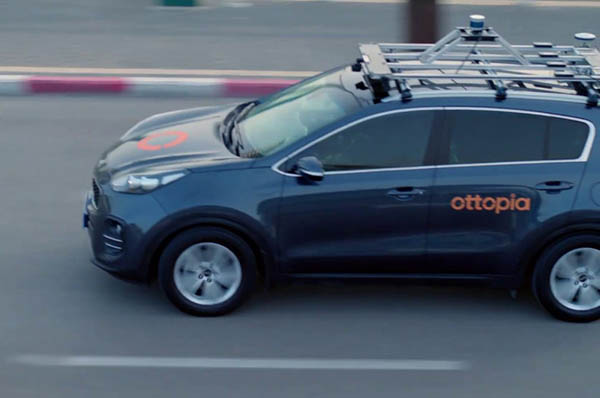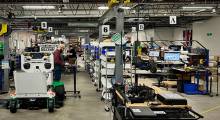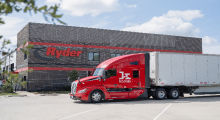Motional Inc. last week said it has chosen Ottopia Technologies Ltd. to support the deployment of its robotic taxicab fleets with remote vehicle assistance, or RVA, for the fully driverless vehicles.
“As we prepare for mass deployments of Motional robotaxis, an RVA solution provides an added layer of support for when our vehicles encounter unique and challenging road scenarios,” said Guillaume Binet, vice president of software infrastructure at Motional. “Effective RVA is an important part of our commitment to delivering a seamless end-to-end passenger experience.”
Motional is a joint venture between Hyundai Motor Group and Aptiv PLC. The Boston-based company claimed that it operates the world's most established public robotaxi service. Motional said its fleet has conducted more than 100,000 public rides and that it was one of the first companies in the world to operate SAE Level 4 vehicles on public roads.
Starting in 2023, Motional plans to launch a fully driverless ride-hail service with Lyft to millions of people in multiple U.S. markets. Motional employees will be able to provide RVA to the robotaxis used in this service. The company also recently partnered with Eversource Energy to use its autonomous vehicles to monitor energy infrastructure.
RVA a 'universal teleoperation platform'
Founded in 2018, Ottopia designs, develops, and commercializes teleoperation systems for cars, trucks, shuttles, and other vehicles. The Tel Aviv, Israel-based company said its technologies, which include software available on the NVIDIA DRIVE AGX platform, can accelerate the deployment of autonomous vehicles and improve their uptime, safety, and cybersecurity.
Ottopia said its universal teleoperation platform enables a human operator to monitor and control any type of vehicle from up to thousands of miles away. The startup has partnered with several technology companies and is targeting the automotive, last mile, freight, and logistics sectors.
RVA refers to a human operator providing remote assistance to autonomous vehicles when they're navigating unusual scenarios or edge cases, said Ottopia. The operator has the ability to direct a vehicle to a new path or provide other assistance, all while located remotely in a fleet control center.
Similar to the challenging driving scenarios that human drivers encounter, edge cases can include roadway interruptions such as construction zones or unexpected behavior from other road users, Ottopia said.
Ottopia, Motional integrate systems
Ottopia said it has optimized its proprietary video, communication, and control software to integrate with Motional's RVA system, which includes Motional-developed interfaces and third-party hardware. The companies added that, Ottopia complements Motional's rigorous approach to safety and security with its safety-first and cybersecurity-first architecture.
“While there are rapid advances in autonomous technology, there are always going to be certain edge cases that can benefit from remote support.” said Amit Rosenzweig, founder and CEO of Ottopia. “This requires the ability to offer robust, real-time human intervention—at any time, anywhere.”
Motional plans to begin testing its RVA solution later this year.
Article topics
Email Sign Up
















